#Writing Ref
Explore tagged Tumblr posts
Text
New Project
Hi All,
This is NOT an April Fool's joke even though I'm posting it April 1st.
I have a new project I'm working on, probably the biggest I've ever attempted. It's a book about writing low resource/field medicine.
I'm hoping to rough draft a chapter a month, and I want to be held accountable. The chapters are too big to fit into posts, so I'm posting them to a Google doc.
New chapters drop the first of the month. You can read them here:
206 notes
·
View notes
Note
hi! you're great I love your work! I've got a weirdly specific archery question and thought I'd send it to you in case you'd find it fun to have a crack at
say you're an expert archer originally from Vietnam sometime in the late bronze age. say you're a super duper expert archer because it turns out you're immortal, and so you do your archery across Eurasia through the first millennium BCE and the first millennium CE and into the age where gunpowder weapons are evolving into cannons. that's a long time to be alive and you do lots of hunting and fighting with all kinds of bows and shooting styles, especially war archery on horseback. then you're out of the picture for a while, let's say you're peacefully sleeping for a handful of centuries. (this is about Quynh from The Old Guard who alas was not peacefully sleeping)
all of a sudden you blink and you've gone from the era where firearms were just starting to develop and maybe with this new flintlock thing guns could eventually get good enough to rival a bow and arrows— bam, now you're in the 21st century. what kinds of modern archery tech would you be most excited to try out? what would you think of a compound bow? Olympic style archery? plastic fletching?? how about the modern reproductions of what are now considered historical bows and shooting styles? is there anything about 21st century archery that you'd want to rant about at length? other opinions about these newfangled takes on your trusty old bow and arrows you care to share?
This is a phenomenal question, and thank you for asking it! Here’s my 2 cents:
The thing about modern archery is that for the most part, modern bows are designed to make it easier to be accurate, to the stage that modern target accuracy is probably better than it’s ever been historically.
BUT, if we assume Quynh is capable of feats of archery that match the level of melee combat skill that e.g. Andy has, then she doesn’t NEED it to be easier to be accurate.
My guess is that someone like her would actually find most modern archery developments needlessly slow and awkward. Compound bows and Olympic recurves are NOT designed for instinctive, fast shooting, and would probably feel quite restrictive once she got over how easy they made accuracy.
BUT, I imagine she would be blown away by the range and arrow speed that modern bows can generate, and there are some recurves (and at least one compound bow), that have been designed to make use of the efficiency of modern materials and bow design, while still allowing traditional shooting styles, and those, THOSE are something an ancient immortal archer might fall in love with! (FWIW, my own go-to is a horsebow made with carbon-fibre limbs and a modern limb profile, and for impact energy it can match some traditional bows with a draw weight that’s 50% greater. The Oneida eagle compound could trump that).
So yeah, it might take her a bit, but once she gets her hands on the right equipment, she’d be (even more) TERRIFYING!
1K notes
·
View notes
Text
Media Representation and Writing Characters with Facial Differences
[Large Text: Media Representation and Writing Characters with Facial Differences]
A writing (?) guide (?) consisting of an explanation of what facial differences are, some basics about the community of people with facial differences, a terminology guide that is extremely subjective, a very long explanation of the real-life effects of misrepresentation of facial differences, a subjective guide on why most tropes surrounding facial differences are awful and unoriginal, and the part that people actually want to see (I hope at least) AKA "types of characters I do actually want to see". As always, this post is meant for people who have no experience with the subject, and not in any way an attempt to tell writers with facial differences on what to do in their own writing.
What Does "Facial Difference" Mean?
[Large Text: What Does "Facial Difference" Mean?]
"Facial Difference" (FD for short) is an umbrella term for any kind of scar, mark, or condition that makes your face visibly different. This encompasses anything from not having parts of the face or having less of them (e.g. anophthalmia, anotia, hemifacial microsomia), having "more" to the face (e.g. tumors, neurofibromatosis, cranium bifidum), conditions affecting how the face moves (e.g. facial paralysis, ptosis, nerve damage), ocular differences (e.g. hypertelorism, nystagmus, strabismus), conditions affecting the colors of the face (e.g. rosacea, vitiligo, pigmentation conditions in general), a "look" that signals a specific disability (e.g. Down Syndrome) and approximately a million more things - scars, burn marks, craniofacial conditions, ichthyosis, visible cancers, and a lot more.
Despite popular opinion (popular ignorance would be more accurate because no one knows about it in the first place) people with Facial Differences have both a movement (Face Equality) and a specific word for the oppression we experience (Disfiguremisia). There is even the Face Equality Week that happens every year in May. This is a real thing that has been happening, and we are generally going unnoticed, even in the "representation matters" circles, the body positivity movement, disability spaces, and so on. There is an alliance of organizations dedicated to this called Face Equality International, who can help you learn about the real-world community and movement. They even have sections specifically about media representation, which is foreshadowing for how important this topic is to the community and for how long the "explaining the issues of representation" part of this post is.
And of course, if you have a facial difference/disfigurement, you can do whatever the hell you want when writing. Call your characters how you call yourself, subvert the tropes you want. I don't want to preach to people who already know all of this firsthand. This post is meant to explain some things to people who don't have experience with having FD.
Terminology
[Large Text: Terminology]
There is a lot of words to describe people with FD. Some of them are alright, most of them are awful.
Please keep in mind that all of these terms (except for the... last one) are used by real life people. This isn't me saying "you can't say that about yourself" (more power to you, I don't care) but rather to educate able-bodied people that some words they refer to use with aren't as neutral as they think (at least not to everyone).
"[person] with a facial difference" - generally the most polite and widely accepted way to refer to us. That's what is generally used in the Face Equality movement, sometimes alongside the next term which is...
"[person] who has a disfigurement" - an alright term that is sometimes used interchangeably with the one above. However, many things that involves the term "disfigurement" to me sound kinda medicalized and/or like lawyer speech. It's not offensive, but just generally used in more official ways. Still better than almost anything else.
"A disfigured [person]" - starting to steer into the "uhh" territory. Describing a whole person as disfigured is, to me, just weird. I get that some communities push for the identity first language, but this just isn't it most of the time. Could be way worse, could be slightly better.
"[person] who has a deformity" - "deformity" is such a negatively charged word that I don't understand how people (without FD) still use it thinking it's neutral. This sounds awkwardly medicalized in a "case study from the 80s" way which is definitely not a good thing.
"A deformed [person]" - pretty much the jackpot of bad terminology, the term deformed, the calling of an entire person by it, it has everything I hate about writers describing people like me. The only one that I think is even more awful is...
"Horribly/gnarly/nasty/monstrous deformity/scar/mark" - again, I'm impressed by what some people think is neutral wording. If you're searching a thesaurus for synonyms of "scary" to describe your character, it's time to just stop writing them. This is about using ableist terminology, sure, but I just can't imagine that someone calling their character that actually will represent FD well. It shows the negative bias and attitude of the writer. I can't imagine someone who writes like this actually likes the people they're writing about.
However, there is also one pretty awesome and simple way to describe them.
Say what they have. Specifically. Really. Assuming you know what condition your character has (which you should) it should be very easy. "She has Treacher-Collins Syndrome." "Xyr forehead has a port wine stain on it." "They can't fully open one of their eyes." It's clear and actually lets your readers know what you mean. You don't have to throw around euphemisms to describe someone not having a nose. When talking about a specific character (as opposed to a social group with similar experiences), this is the best option. If you're in doubt, just name the condition.
Tropes and Current State of Representation
[Large Text: Tropes and Current State of Representation]
If you have read basically any of my previous posts about FD then you probably know what I'm about to say in this section. Still worth a read though. I hope. Warning that this is long, but you probably expected that already.
One thing I will note at the start is that I'm aware that a lot of writers were already turned off from this post just because of the terminology section. I know that artists love describing people like me as ugly deformed monsters. It's literally a tale as old as antiquity, and that's how overdone and stale it is. Visibly disabled = ugly. I get it, I heard it a thousand times before, I hear it majority of the time someone is excited to tell me about how horrible and gross their OC's scar is. But now some guy from that group is telling you to like, maybe stop calling your disgustingly deformed character that.
I want to make it very clear that FD representation in media is not treated like a real thing that's worth anyone's time, even by the most "representation is so important!" writers. I guess it's too inconvenient to unpack the amount of baggage and uncomfortable implications this would cause. It's too good of a device in writing; everyone knows that if a guy with a scar shows up that it means he's evil, the easiest way to make a villain visually interesting is to make them a burn survivor, and if you need a tragic backstory for a serial killer just give them a congenital disability that caused literally everyone in the world to treat them horribly, so of course they started killing people. It's such a good moral signifier that literally every book and tale has done - pretty is good, ugly is bad. Dichotomy is so helpful.
What is less helpful in the real world is that what is considered "ugly" is generally very tightly bound to what visibly disabled people look like. Ugly Laws weren't just like, coincidentally including disabled people and disability activists aren't still forced to speak out against being put in those "Ugliest People" lists by accident. This is all to say that facial differences are considered to be "ugly" completely uncontested, and you probably have this bias too, as the vast majority of people do. The whole "the character is ugly, then they become evil, if they're evil, they become ugly"... you need to be conscious to not do that. Don't make them evil if they're visibly disabled because it will always end up being the same old trope, no matter how many weird excuses and in-universe explanations you give. I want to put it in people's heads that you are writing about a community of people who are technically visible in real life, but have no large voices that the general public would listen to when it comes to how we are seen. The general public relies on media to tell them that.
Putting people with FD in your books or your art seems to suddenly be intimidating for a lot of artists when they realize that not only is facial difference a real thing, but people who have it can see what you write or draw (and your other readers will take some things out of what you write, subconsciously). When an author is faced with the fact that maybe they are doing harm with their writing, they either: suddenly don't want to do that anymore at all, or say: "I don't care! I'm going to be very innovative and make my very evil OC be deformed!", which is kinda funny to me that people actually seem to think it's edgy and cool to repeat the most tired Hollywood tropes, but that's the best we can get, I guess.
The attitudes that people have around the topic of facial difference and the whole "media impacts reality" are very interesting to me in general. On one hand, when I tell someone that I was bullied or ostracized because of my disabilities, no one is ever surprised. On the other hand, everyone is for some reason uncomfortable when I say that this doesn't just... appear out of thin air. People are taught from childhood that facial differences and the people who have them are scary, untrustworthy, or literal monsters. Media is a major factor in that. Like, looking back at it, it makes sense that my parents told me not to stare at other kids because they would get scared. After all, I looked like a kindergarten version of the bad guy from some kid's book. Other kids were able-bodied and looked like the good guy, I was visibly disabled and looked like the bad guy. That's the lesson kids get from media on how people with visible disabilities are: evil, scary, not to be interacted with. So they avoided me because of that while I had adults telling me to not even look in their direction. Dichotomy is so helpful, right?
And this doesn't magically stop at children. When I post a self-portrait or a selfie, I deal with multiple grown people comparing me to sometimes an animal, usually a specific character from a movie, sometimes even making my face into a meme right away. But if people don't generally see people with facial differences on the daily, then how are there so many specific reactions and so many similar problems that we go through? If it's so rare, then how are people so quick to tell me the character I remind them the most of- Yeah, media. It's always media. It's almost funny how everything circles back to one thing.
I want you, the author, to understand the impact of misrepresentation of facial difference. If you feel uncomfortable because you have done these tropes before, good. That's a sign of growth. If you want to help instead of harm, you need to get over your (subconscious) biases for a minute and think about how a person with the same condition as your character would feel like reading about them. Maybe you are even currently realizing that that one OC with scars is just five harmful tropes glued together. Maybe you are going to reblog this and tell me in the tags that somehow your character decided to be like that, as if they have free will instead of being written by a biased human being. Or, as I said earlier, a lot of people will be annoyed by this post and keep doing their thing. Which is like... whatever, I guess. Who cares? There are a dozen huge movies and TV shows every year that do this. It's so basic and normalized that whatever reach this post will have will change very little. I have been signaled "we don't care what you think about how we portray people like you" my entire life, I'm frankly more surprised when people do actually claim to care. You can, practically speaking, do whatever because the FD community is fully ignored by everyone and even if I'm disappointed or annoyed, I'm just one man and I know (from experience) that most people won't have my back on this topic. It's too ingrained in our culture at this point to challenge it, I suppose. I mean, there have been multiple media campaigns telling writers to treat us as people, and they had practically zero impact on the writing community. But, even with my absurdly pessimistic view on this subject, I still decided to write all this. Sure, there are no signs of the industry changing and the writing community doesn't seem to care much, but I still naively hope that maybe the right person will read this and at some point in the future I will be watching or reading about a character that looks like me and actually have a good time, and even more naively that maybe people will gain some amount of awareness of the damage that has been and still is happening to people with FD through media, so that the next time they see that the villain has facial scars for no reason they will think "damn, this sucks" the same way I do. And very, very naively, I hope that people who read this will start seeing us as people. Not villains, not plot devices, not monsters.
Sad part over (?), now the fun (?) part. AKA the tropes! Yay.
"Dramatic Reveal of The Deformity".
Use of the word "deformity" very much on purpose here. This is arguably the most common trope when it comes to FD, and it's always awful. At the very best it links FD with trauma and talks in a Very Sad Voice about how having a FD is the worst thing imaginable, I guess ("X did this to me... now I'm Deformed For Life..." type of scene) and at worst it does the classic revealing that the main villain actually was a burn survivor under his mask, because of course he was. In media, people with FD are evil. If they're not, then it's because someone very evil did it to them (the most evil thing of all - causing someone to have a facial difference. the horror!). It can't be a thing unrelated to someone's morality, there's gotta be evil somewhere around it. There is literally nothing good about this trope. Showing FD as something to hide? Check. Dramatizing FD? Check. Placing the way someone's face looks as the worst thing possible? Check. General treating FD as some kind of circus attraction to stare at with your mouth open? Check.
"Wearing a Mask*."
I made a whole post about this one actually, that's how much it annoys me. Putting your character with FD in a mask is so overdone, lazy, and boring I'm not even offended as much as I thought I would. It's like - really? Again? For the millionth time, the character with FD is forced to hide their disability? Is the author scared? What is the point of giving your character a visible difference if all you're doing is hiding it? And yes, I know that your character chose to do that for reasons that you as a writer somehow can't control. It's always so strange how it's the character that's in control and the writer is in the passenger seat when it comes to annoying tropes.
Since I originally made this post I've come to discover that this is way more common than my pessimistic ass thought back then. Here's a whole tag for this trope.
*"mask" here refers to anything that covers the character's facial difference (e.g. eye covering, surgical mask, whatever. It's about hiding it and not a technical definition of "what is a mask").
"Good Guy has the Tiniest Scar You Can Imagine, but Don't Worry! The Villain is Deformed As Hell."
A genre on its own. In the rare instance that a positive character has a facial difference, they have a curiously limited choice - you can have:
the thinnest, definitely-very-realistic straight line going through the eye (the eye is always either perfectly okay or milky for reasons the author couldn't tell you),
the same exact line but going horizontally across the nose,
and if you're feeling spicy you can put it around the mouth,
regardless of location, just make sure it doesn't look like an actual scar (certainly not a keloid or hypertrophic one) and is instead a straight line done with a red or white crayon. Interestingly, villains have unlocked more options which stem from scars, craniofacial conditions, burn marks, cleft lips, ptosis, colobomas, anisocoria, tumors, facial paralysis, to pretty much everything that's not infantilized, like Down Syndrome. These are always either realistic or extremely bloody. I sound like a broken record by now, but no, your morality has nothing to do with your physical appearance and being evil doesn't make a visible disability get more visible. Shocker. And don't get me started on...
"The Villain turned Evil Because They Have Scars."
Nice. Disabled people are evil because they're disabled, truly a timeless classic for able-bodied writers whose worst fear in life is being disabled. In case that needs to be said, having a facial difference doesn't turn you evil, doesn't make you become a serial killer, doesn't make you violent, doesn't turn you into an assassin with a tragic backstory seeking revenge for ruining their life. If anything, having a FD makes it more likely for other people to be violent towards you. Speaking from experience.
"The Villain Just Has Scars."
An impressive attempt at cutting out the middleman of "clumsily and definitely not ableist-icly explaining why getting a scar made them evil" and not even bothering with a tragic backstory or anything. They are evil, so of course they have a facial difference. What were you thinking?
"Facial Difference is a Plot Point."
As anyone who's read A Book will tell you, the only way to get a facial difference is to be in a very dramatic fight or an extremely tragic accident who will become a plot point and thus the facial difference is now Heavily Emotionally Charged and a symbol of The Event/The Tragedy. If you look at media, congenital FD isn't a thing, illness-related FD doesn't exist and boring domestic accident or a fall causing FD has never been seen. It has to be dramatic and tragic or else there's no point in them having it. A true "why are they [minority]" moment, if you will. You can't just be, you have to be plot relevant.
"Character gets a FD but then Gets Magically Cured Because They're Good."
Truly one of the tropes that make me want to rip my hair out. Curing your character with FD sucks just as much as curing a disabled or neurodivergent character. Who is this even for? That's not how real life works. This is some actual Bible shit, that's how old this trope is. The only thing you're doing here is making people think that those who do have FD just aren't "good enough". Every time I see it, I wonder what the author would think of the congenital disorder I have. According to this kind of in-universe rules, was I born evil and just never got good, or..?
"Character with FD has Self-Esteem Issues and Hates Their Face."
I admittedly mocked all the previous tropes because they're absurd, ridiculous, offensive, boring, all of the above, and have zero basis in reality. This one however... ouch, right in my own tragic backstory. This is unfortunately a very real experience that a lot of people with FD go through. I even have a hunch there wouldn't be as many if the general public didn't think of us as monsters, but I digress. Yes, a lot of us have or had self-esteem problems, and a lot of us wished that we wouldn't have to go through all the BS we were put through because of it. Thankfully for you, you don't have to write about it! Seriously. You don't need to. As one million people have said before me, "maybe don't write about things you haven't experienced" and I agree here. I have yet to see an able-bodied author get anything about this right. Instead of the deeply personal, complex experience that involves both you, everything around you and the very perception of what others think of you that this is, somehow writers keep giving the tired "character crying and sobbing because they're 'ugly' now", because the author thinks we're ugly. Or maybe they're sad because all the other characters with facial differences are evil, and they didn't have the time to prepare their evil monologue for when they inevitably become evil in the sequel? Who knows.
"The Author Doesn't Know."
The author not knowing what their character actually has going on medically is common to a ridiculous extent - this applies to all kinds of disabled characters as well. You don't need to name-drop the Latin term for whatever your character has, but you need know what it is behind the scenes. You need to know the symptoms. You need to know the onset and the treatment or lack of it. Please do your medical research.
Things I Want to See More of in Characters with Facial Differences
[Large Text: Things I Want to See More of in Characters with Facial Differences]
The thing you might have noticed is that I want Facial Differences and People with Facial Differences to be presented as normal. Not killers, not SCP anomaly whatever, not monsters, not evil mercenaries who have "revenge" as their only life goal. I'm aware that the term is tired, but I absolutely want Facial Differences normalized as much as possible.
I want to see more characters with facial differences...
who have friends that don't bully or make fun of them because of their appearance.
who have support from their family.
who know other people with facial differences - even if they're just background characters, or mentioned in passing. Marginalized people tend to gravitate towards each other, people with FD aren't some magical exception to this.
who are queer.
who aren't only skinny white cis dudes in general.
who are disabled in other ways. A lot of us are Blind, Deaf, both, unable to speak, intellectually disabled, having issues with mobility, and a million other comorbidities.
who are fantastical in some way - preferably not the "secretly a monster" way. But a mermaid with CdLS or an elf with neurofibromatosis? That's cool.
who are allowed to be cute or fashionable.
who have jobs that aren't "stereotypical bad evil guy jobs". Give me a retail worker with a cleft lip or a chef with Down Syndrome.
who are reoccurring characters that just happen to have a FD.
who are those stock/generic characters that aren't typically associated with FD. Hero's mom has septicemia scars? Cool. The popular cheerleader at school has alopecia? Awesome. The bartender of the place the heroes secretly meet up at has Möbius Syndrome? Goes hard. The kid that the MC used to hang out with before they moved somewhere else has Crouzon Syndrome? Great.
who have their FD be visible.
who aren't ashamed of their FD.
who are feeling very neutral about their face.
who are proud of how they look.
who got their FD in a very boring way or were just born with it.
who have facial differences other than small scars.
who's angst is fully unrelated to their FD. I love me an angsty teen character. Even more if they are angsty about their crush, or basically anything that's not their disability.
who have a significant other who doesn't do the whole "I love you despite your looks" thing. It just sucks. Sorry. I would hate if someone said this to me.
who are children and aren't implied to be "cursed" or "demonic".
in genres that aren't just horror or thriller. RomCom or slice of life, anyone?
who aren't evil.
who aren't criminals.
who aren't vigilantes/morally gray.
who aren't social outcasts.
I want to see stories with multiple characters with facial differences. I have nerve damage and facial asymmetry, and I am friends or mutuals with people with Williams Syndrome, Bell's palsy, Down Syndrome, neurofibromatosis, facial atrophy, ptosis... and a lot of other things. Your character would have (or, would probably want) some connection to their community. We aren't rare.
And, I want stories with the spectrum of facial differences shown. Of course, you can't represent the actual whole spectrum, but you can still aim for at least a few. Don't give every single character with FD the same scar-through-eye + eyepatch. It's not unrealistic to have a range in your writing. Here is a list of facial differences you might want to check out for inspiration. Don't be scared to give them something rare - no matter how uncommon, people still have it. My specific condition is allegedly extremely rare - I still want representation.
Closing Remarks
[Large Text: Closing Remarks]
Facial difference and the media is a topic that plagued me for the past two decades and won't stop ever, I think. It's a very unique relationship of a group of people who just aren't allowed to get into the industry and an industry that clearly hates them, loves to use their image, and defines how people see them all at once. There's this overrepresentation that is consistently awful and damaging to an absurd degree. Most people know more villains with FD than actual people. Certainly doesn't feel great to be one of the aforementioned actual peoples. But I hope that this will change - the negative portrayals that are plaguing the FD community will slowly fade out and a newer wave of portrayals will come in, hopefully this time realizing that we are real people and care about us a bit more.
The thing with facial difference is that it's pretty much impossible to make a specific guide of what it's like and what to do in context of writing because it's an incredible vast category that includes conditions that are very different from each other. That's why this post was more focused on "why you should care in the first place" (sorry for the clickbait) rather than being a straightforward guide that would still be very lacking even if 20 different people were collaborating on it. I really, really encourage everyone who got through this rather long post to do their research on what they plan to write about, be conscious of their own biases, don't pull inspiration from movies because they're all hellholes full of tropes and just sit down for a minute, think of the real-world people with facial differences, and read what we have to say. I know that drawing a guy with a line across his eye is more fun than realizing you're low-key scared of or uncomfortable around the real-world equivalent, but sometimes you have to get over yourself and try to be a better person. Caring about the people you write about is, dare I say, essential. That will certainly make your writing of us better :-) (smiley face with a nose)
If you have any specific questions, feel free to send an ask
Mod Sasza
#mod sasza#face difference#writing advice#writing ref#writeblr#writing disabled characters#long post#writing reference#writing resources#writing guide#writing resource#writing tips#writing help#burn survivor representation
2K notes
·
View notes
Text
do you think when McCoy or Kirk are hurt, does Spock panic and check for their heartbeat in the wrong place and then panic even more when it's just the liver quietly chilling there. do you think McCoy makes fun of him mercilessly once it's confirmed that everyone is okay, and Spock has to gather his shattered dignity and pretend he just needed to check the liver for scientific reasons and also human bodies are stupid and it's not HIS fault. and then Jim tries to do damage control like, hey, i think livers are neat! And that of course makes it worse, and Spock goes off To Sulk until McCoy bullies him into taking a first aid refresher, which actually does make him feel better?
i think that happens. i think it happens twice. Spock's so angry the second time he says Very Mean Things about human organs. He makes a powerpoint, actually.
(McCoy makes him sit down for a one-on-one human anatomy class after the powerpoint fiasco, but it's a very hands-on course so Spock doesn't protest too much.)
#star trek#star trek tos#spock#leonard mccoy#james t kirk#i need to go to bed but i just keep picturing mccoy blinking awake from unconsciousness just in time to hear spock's TOTALLY CHILL VOICE#yelling to jim ''I CAN'T FEEL A HEARTBEAT CAPTAIN'' and then looking down and seeing spock's hand on his goddamn liver#and then i keep cackling#writing ref#st:tos#mine#spones#or#mcspirk#tos writing ref
571 notes
·
View notes
Text
mommy’s strong suit does NOT lie in photo manip skills but i desperately needed a body ref for husky!neighbor!Eddie so here’s this. made sloppily and lovingly with canva if that wasn’t obvious alr <3
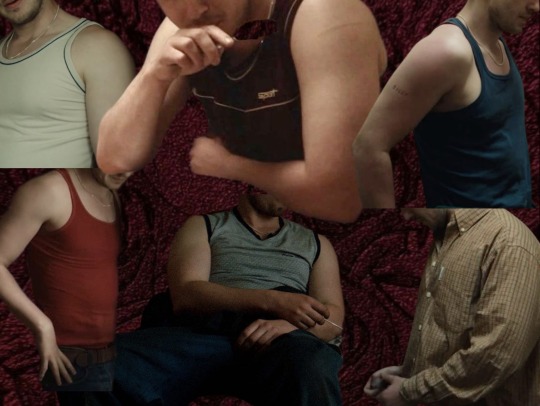
more of neighbor!Eddie can be found here, here, and here! requests are also open
54 notes
·
View notes
Text
Sukuna Can't Tell the Time (The unique way Sukuna is damned to eternal miscommunication and existentialism in the modern era.)
Notes before we start.
1) I will be mainly using the TCB scans for the manga because of their accessibility.
2) I need professional help.
(Click images for captions/citations.)
Preface
I want to get one thing out of the way. This is going to be a weird write-up because I'm hardly going to cite the manga.
I'm basically posting this as a reference for myself. All of this occurred so I could properly lean into the old man aspect of Sukuna for a fic I'm writing. (Aka I read too much on actual Heian Era history and now you all have to suffer.)
People often joke that Sukuna is an old man, but I'm here to tell you he is so out of touch and out of time that he might as well be existing in a never-ending Lovecraftian nightmare where time has stopped being real.
It's going to take a while to explain why this is the case so hear me out, maybe?
Fundamental Measurements
What is a unit of measurement? And where did these units come from? If you've taken an entry level physics class, you've already been through the existential crisis answering these questions caused.
But for the uninitiated, have you ever sat down and asked yourself why you know what a foot/meter is? Everyone has kind of agreed they represent a specific distance, and depending on where you were raised, you'll prefer one over the other.
I'm an American. I'm also an engineer. I have to use SI Units and Freedom Units all the time. Differing distance units are things I can easily conceptualize. I understand what a meter is. It's like 3.3 feet.
Every time I hear meter, my brain does the conversion to 3.3 feet because I was raised with feet as my base unit of measurement. But oddly enough, when I hear 100 meters, I instantly know how far that is. This is because I was a sprinter for all of Jr. High and High School. When someone says 100 meters, I picture the got danged torture stretch of the 300 meter hurdles.
The point of this is to establish that early life experiences become a reference point when thinking about things as an adult. If I didn't run track or do engineering, I would be a "What the fuck is a kilometer?" type American.
Measurements of Miscommunication
If you couldn't tell, I wrote the previous section with Non-Americans in mind. I specified the units of measurement I was using for distance because I understand people outside of the US could be reading my post.
But what happens if I don't do that? What happens when people assume everyone's units of measurement are the same as theirs? Allow me to recall a conversation I'm sure most of you Non-Americans have had with an American on the internet and vice versa.
Friend, Non-American: Ugh it's 40 degrees out today.
Me, American: Dang that sounds pretty cold, don't forget to wear a jacket.
Friend, Non-American: What the hell do you meant that's cold???
Me, American and remembering where they live: OH YOU MEAN CELSIUS. That's 104 in Freedom Units.
Friend, Non-American: 104 IS SUPER DEAD IN CELSIUS.
(40°F is 4.4°C btw.)
As you can see, these kind of assumptions relay drastically different information. 40 degrees without a unit is read as cold or hot depending on where a person is from. It also doesn't help that the conversion between these units is nonsense. The vast majority of people can't do °C = (°F − 32) × 5/9 off the top of their head.
I, for the life of me, cannot comprehend Celsius. Temperature is too abstract a concept for my brain to swap systems. I think there's a reason for this.
Unlike distance, you can't see the temperature with your body. You can feel it, sure, but sometimes you step into a walk-in freezer and come out feeling like everything is warmer than it is. Relativity like that won't affect how you see distance. A foot is a foot, a meter is a meter, and they will always look those distances. You can check them easily.
Temperature? You need a thermometer to check. Or you assume the generalized data on a weather app is accurate. And things like humidity can fudge with your perception it.
This is all to say that my brain assigned the number 40 as cold. It being a hot number is barely comprehensible because my foundation is it being cold.
(If you were wondering, yes this is why I write out dates like Month DD, YYYY. It's so no one has to look at 3/4/YYYY and guess if they're supposed to be reading it as March 4th or April 3rd because they can't tell what country I'm from.)
What does this have to do with Sukuna?
Well my dear reader, my question to you is: What units of measurement were used in the Heian Era?
Forget about distance and temperature. How was time measured in the Heian era?
Heian Era Timekeeping
Ancient Japan ran on something called a Lunisolar Calendar. This is a type of calendar based around moon phases and sun positioning hence, lunisolar.
Taken directly from Wikipedia:
"A lunisolar calendar is a calendar in many cultures, incorporating lunar calendars and solar calendars. The date of lunisolar calendars therefore indicates both the Moon phase and the time of the solar year, that is the position of the Sun in the Earth's sky. If the sidereal year (such as in a sidereal solar calendar) is used instead of the solar year, then the calendar will predict the constellation near which the full moon may occur. As with all calendars which divide the year into months there is an additional requirement that the year have a whole number of months. In some cases ordinary years consist of twelve months but every second or third year is an embolismic year, which adds a thirteenth intercalary, embolismic, or leap month.
Their months are based on the regular cycle of the Moon's phases. So lunisolar calendars are lunar calendars with – in contrast to them – additional intercalation rules being used to bring them into a rough agreement with the solar year and thus with the seasons."
Did you notice something funky? A leap month has to be accounted for with this calendar. And it gets worse. The duration between leap months vary because the earth's path around the sun varies.
Under this calendar system, instead of a fixed interval of time always passing for a year, everything is variable. This means conversion to a modern date, which uses fixed time intervals, is not a one to one thing. It's kind of like trying to convert February 29th to non-leap years. Some people born on this day celebrate on February 28th and others will use March 1st. Legally speaking in the US, March 1st is used for tallying. (And if you've seen the Pirates of Penzance, this is an actual plot point when trying to determine a character's contract clause.) So imagine that but for months, years, and hours all the time.
I exclude days from this issue because Heian Japan agreed that a day was as day. They don't shrink or grow. The 12 hours a day always pass! And yes I mean 12 hours a day.
Heian Hours
For the rest of this discussion I'm referencing this lovely source by Katherine M. Lawrence. Everything quoted is from here.
So... let's get into that 12 hour day thing.
"Days consisted of 12 hours based on the 12 zodiac animals, each Heian hour being equal to about two modern hours. In a moment I will get to why I deliberately used the word “about.”
Days were divided into six “hours” of daylight and six “hours” of darkness. Instead of midnight, the day started at daybreak. Only in the Meiji times, in 1867, did the day change at midnight.
What is fascinating is that there were always six “hours” of daylight and six “hours” of night irrespective of the time of year. In modern times, with mechanical and even atomic clocks, we accept that more daylight falls in summer than in winter. We might turn back or move our clocks forward twice a year. In Japan it was done 24 times a year—approximately every 14 to 16 days—so that the first light would always come during the first “hour” of the day, which was known as the Hour of the Rabbit, sometimes called the Hour of the Hare. Dusk would come at the Hour of the Bird, sometimes called the Hour of the Rooster.
If we were to measure the actual length of winter days using a modern timepiece, the Hour of the Rabbit would be shorter than two hours because the relatively shorter total daylight in winter would still be distributed into six parts.
The six nighttime hours in winter would absorb the extra darkness and be proportionately longer than the nominal two hours of our 24-hour clock.
All this kept the astrologers and priests busy, because every 14 to 16 days, the clocks had to be adjusted. “More on that in a minute,” which by the way, is an idiom the Japanese of the era would not have used, because our modern concept of sixty minutes to an hour and sixty seconds to a minute is highly tied to mechanical clocks."
In summary, Heian Hours quite literally grow and shorten depending on the season. That 1 Heian Hour=2 Modern Hours conversion only works when daylight hours are the exact same as nighttime hours.
But it gets even weirder than that. Rather than counting from 1 to 12 for daytime and nighttime like we might on our modern clocks, Heian Japan counted down from 9 to 4 twice. This results in a clock conversion that looks like this.
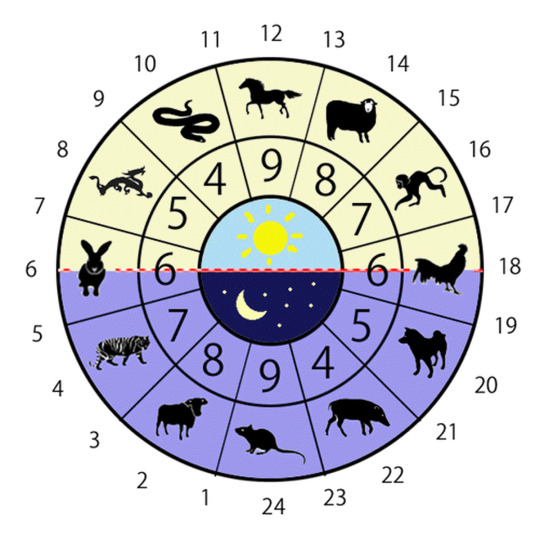
And remember, this is only accurate when daylight hours are equal to nighttime hours!
It should also be noted that these hours were announced by the ringing of temple bells throughout the day and the night. Everyone relied on these temples to keep the time at all times.
But wait, there's more! (Heian Months and Solar Stems)
This is where timekeeping really starts to fall apart in terms of my understanding of it so Ms. Katherine M. Lawrence is going to explain it.
"In the Heian period (and until 1867), each month began on the dark moon, also know as the new moon. The full moon would come on the 15th day and the month would end approximately on the 28th, sometimes the 29th, and even the 30th day of the month.
Japanese did not have the western concept of the seven-day week, though they certainly could count to seven. What they had instead was the concept of the solar stem, of which there were 24."
"The first solar stem of the Japanese year starts on the first day of the year: Start of Spring, which, unlike the Western calendar, is not in March. The Last Solar Stem (the 24th) ends on the last day of Major Cold. The beginning of the year in Japan, as measured by the Western calendar, would start somewhere between mid-January and mid-February, the variation resulting from aligning the solar stems with the lunar months."
In summary, Heian Months may be about the same length as Modern Months, but they are strictly based on the moon phases and the 24 Solar Stems are anchored around them.
This leaves us with a conversion calendar that looks like this. (Edited to number the Solar Stems.)
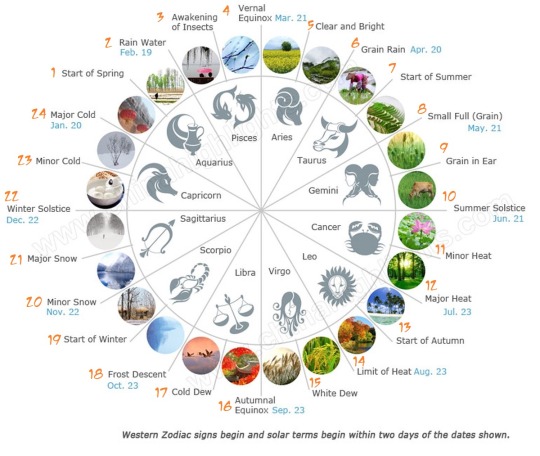
And remember, this is approximate. The Solar Stems do not always align with these exact Georgian calendar dates.
The lunar months, of course, do not use our calendar date names. I present a summary table based on several people's documentation (Source 1, Source 2, Source 3) since sadly the other blogger didn't include them:
(Jan-Feb) Mutsuki (睦月) Month of Harmony/Affection
(Feb-Mar) Kisaragi (如月) Month of Changing of Clothes
(Mar-Apr) Yayoi (弥生) Month of Plant Growth/New Life
(Apr-May) Uzuki (卯月) Month of Deutzia Flowers
(May-Jun) Satsuki (皐月) Month of Planting Rice
(Jun-Jul) Minazuki (水無月) Month of Water/No Gods
(Jul-Aug) Fumizuki (文月) Month of Literature
(Aug-Sep) Hazuki (葉月) Month of Leaves
(Sep-Oct) Nagatsuki (長月) The Long Month
(Oct-Nov) Kannazuki (神無月) Month of Gods
(Nov-Dec) Shimotsuki (霜月) Month of Frost
(Dec-Jan) Shiwasu (師走) Month of Running Priests
This table merges multiple sources because the translations of Kanji differ and it's good to see how/why these differences occur. There's also the issue of the bloggers presenting the months like 1-to-1 conversions.
I want to stress that these Lunar Months start and end anywhere from the middle to the late parts of Georgian Months. This is why Source 1 claims Mutsuki=Feb while Sources 2 & 3 claim Mutsuki=Jan. Source 1 chose Feb because the majority of Mutsuki occurs in Feb while Sources 2 & 3 chose Jan because Mutsuki technically starts in late Jan.
Now that I've laid all this out, I'm sure you have the following burning question:
How the hell do you convert modern time to Heian time???
I turn to Ms. Katherine M. Lawrence again for guidance.
"If this post gets some interest, I will continue and explain how the author calculates..."
There's no guidance.
However! There is an example of a conversion without the explanation.
"Thus, we know as Yamabuki and Tomoe ride up to the Shayō Tōge, the Sunset Pass, at Sunset on May 11, 1172, in the middle of a freak snowstorm, the author can say with some assurance that it happened at the Hour of the Bird on the 13th day of the 7th solar stem, two days past the full moon of the Flower Month."
So I'm going to try to figure out how this occurred using the information I've been given.
Hour of the Bird: This one is easy! The bird hour is the official sunset hour.
7th Solar Stem: According to the chart that's between late April and early May.
13th Day: Since Solar Stems are about 14-16 days this means it's almost the 8th Solar Stem which starts around May 21st.
2 days past the full moon of the Flower Month: "Flower Month" is not on my chart. From what I know about kanji, I think this is a simplification of Uzuki (卯月) or the the Month of Deutzia Flowers. This aligns with the month of May.
This is where I give up. I legitimately do not know where to go from here. ...And that's my point.
What does this have to do with Sukuna?
Before I completely lose you, my dearest most patient reader, please consider the following:
You wake up in a place where time is counted backwards and the hours pass faster than you've ever known them to. The things you use to tell the time don't exist or are in a form you no longer can recognize.
You see a clock face that counts in the wrong direction to numbers you've never seen used for time. The sounds it makes are familiar and foreign all at once. When you try to use the times and dates everyone you ever knew understood instantly, you're met with complete confusion. No one except a few dedicated scholars know how to convert your concept of time to theirs.
This is how Sukuna experiences time in the modern era.
Sukuna Can't Tell the Time (Sukuna almost fumbled his date with Gojo.)
Remember all my rambling about my own experiences with trying to understand SI Units as a Freedom Units user and my complete and utter failure to convert Heian Time to Modern Time? This is to establish that on a fundamental level, it does not matter that Sukuna has access to his vessel's memories. These foreign units mean nothing without a conversion reference.
Yuta in Gojo's body showed us how the memory recollection process works. You see them like movie and must draw your understandings from them.
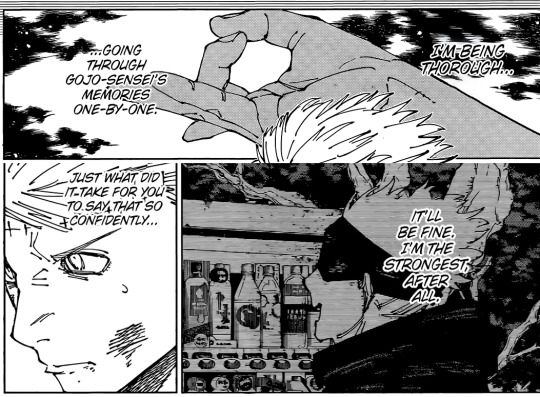
We also learn from Sukuna that he tends to ignore memories that aren't relevant to his sorcery. So something mundane like telling the time isn't his priority. (I often think about how Sukuna has been watching Yuji and everyone around him use a cell phone but he still calls it a photography device.)
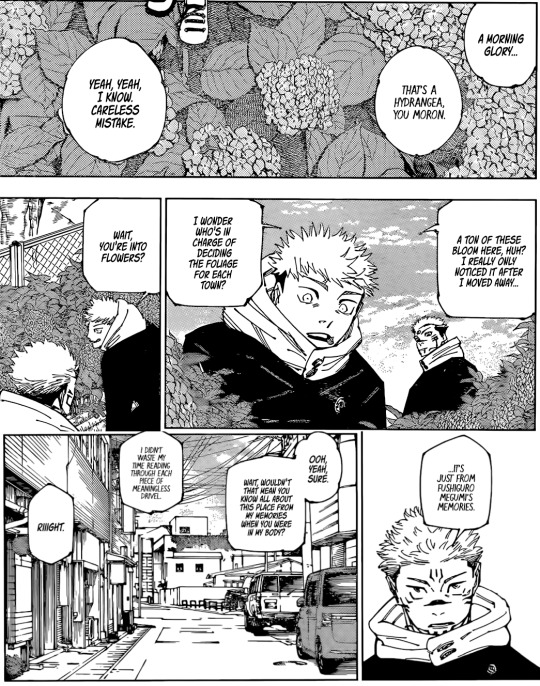
(He's lying about the flowers though.)
So this leads us to Sukuna and Gojo setting the date for their battle...
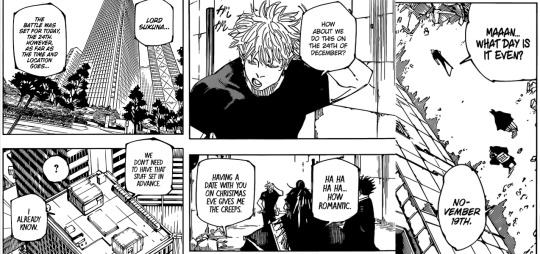
When Sukuna heard Kenjaku say November 19th and Gojo say December 24th his brain was the equivalent of TV static. It's very likely that Sukuna had to rely on Kenjaku to ensure he showed up at the right day. (Kenjaku, of course, is an exception here because instead of drawing from memories, Kenny got to live through the transitional period of the Lunisolar Calendar to the Georgian Calendar and had 100+ years to adjust to it. And now that I think about it, the Culling Game using days to count time is probably Kenjaku being considerate of this generational difference.)
It's a really good thing that Gojo didn't specify the time because that would've made things worse. See the following examples using the handy dandy conversion chart as a reference...
Gojo: Let's do this at 10.
Sukuna: ???
Gojo: Let's do this at 9.
Sukuna: *Shows up approximately 2 hours late at 11 am.*
Gojo: Let's do this at 8.
Sukuna: *Shows up approximately 5 hours late at 1 pm.*
Gojo: Let's do this at 7.
Sukuna: *Shows up approximately 8 hours late at 3 pm*
Gojo: Let's do this at 6.
Sukuna: *Shows up on time?* (It’s December in the northern hemisphere so the sun comes up after 6. Sukuna might still show up a bit late.)
These examples also assume that Sukuna can still gauge Heian Hours accurately. That too is up in the air because the hourly bells that sounded the Heian Hours no longer exist. The temples and bells may remain, but their use for timekeeping has changed entirely.
Since it's likely he spent a large portion of his early life in a temple, there's a chance Sukuna has a strong internalized sense of Heian Hours. But how many people do you know that can accurately feel an hour pass on vibes alone?
There isn't any point in the manga where Sukuna indicates he knows what Georgian Month is, let alone a Modern Hour. I think that's why he's just waiting on top of the building for Gojo to show up. The day starts for him when the sun comes up, not midnight. He probably figured that as long as he was out there by dawn, eventually his date would show up.
There's something strangely adorable about that. Sukuna didn't go out massacring others for funsies or wreak havoc after Gojo was unsealed. He just waited a whole month and gambled on their connection starting the death date on time.
How Sukuna Might Tell the Time
When Sukuna uses time units, he only uses minutes or seconds.
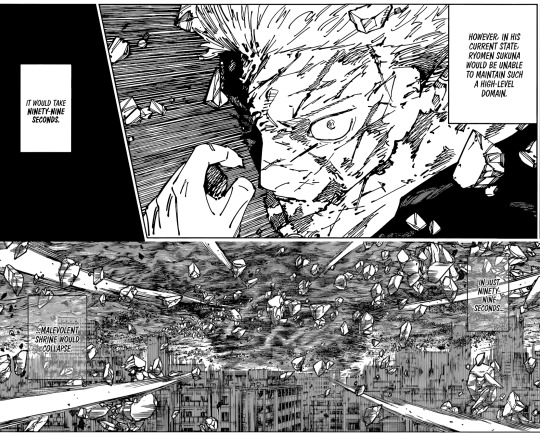
Well...the narrator implies he's able to use seconds.
This makes sense despite the Heian Era not having minutes or seconds. They're foundational units rather than a unit he needs to convert to something mentally. Because they are so drastically smaller than other Heian units of time, it's easier for the brain to calibrate itself to them.
This means that if one wanted to communicate a duration of time to Sukuna, it would be better to use minutes or seconds.
For example, rather than saying "see you in an hour", "see you in 60 minutes" would be better. Otherwise Sukuna is going to default to 1 Heian Hour and show up approximately 2 hours late.
Another example, telling Sukuna you'll "be gone for a few hours" means to him that you'll be gone for most of the day. At this point it would be better to reference a duration of an activity he's familiar with than use minutes. Sukuna watched some of those movies with Yuji. "I'll be gone for 1-2 movies" will make a little more sense to him.
Funnily enough though, telling Sukuna that you work a 9-5 wouldn't cause a miscommunication for duration. That's 4 Heian Hours or about 8 Modern Hours. He probably thinks it's weird you start working in the middle of the day and into the night though.
How Sukuna tells time for himself is likely similar to someone lost in the wilderness. He'll mostly be relying on environmental cues like moon phase, sun position, constellations, and flora growth. (Which ironically, climate change affecting flora growth patterns would throw him off even more. I can't even imagine how he'd feel about light pollution stealing away the stars on top of that. But at least the moon is still there!)
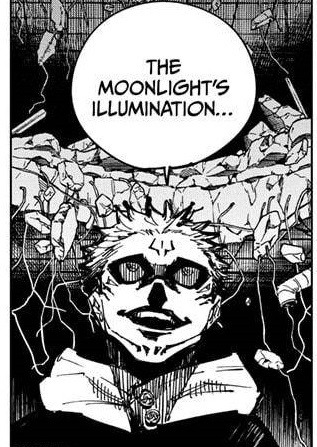
But as you can see, the normal methods of precise timekeeping are next to impossible for Sukuna to use and this discrepancy is ripe for miscommunication. This has a lot of comedy and horror potential in fanworks. (Hence me writing this as a resource.)
How Sukuna Used to Tell the Time
After doing all this research, I found myself viewing Sukuna's theme Malevolent Shrine a little differently. I always found it to be a quite sad sounding song for his character. Villains as violent and fierce as Sukuna tend to get battle themes that reflect that. In comparison to high energy bangers like One-Winged Angel (Sephiroth Final Fantasy), Avalon (Ultimate Lifeform Kars Jojo), or The Last Mission (Murem vs Netero Hunter x Hunter), Malevolent Shrine is rather somber and unfocused.
This theme opens and closes with bells. The opening in particular feels chaotic with how the different bells seem to overlap and overwhelm each other. But if you listen closely, you'll hear the gong of a temple bell that keeps rhythm by marking the start of a new measure. Using this bell, it becomes easier to count the beats, even when it eventually disappears in the middle section.
His theme to me now feels like an echo of what Sukuna used to know before he was thrust into a world that is no longer in sync with his very concept of time.
"Interestingly, the Japanese “witching hour” is not at midnight, but at nominally 2 AM (1 AM–3 AM) and is known as the Hour of the Ox."
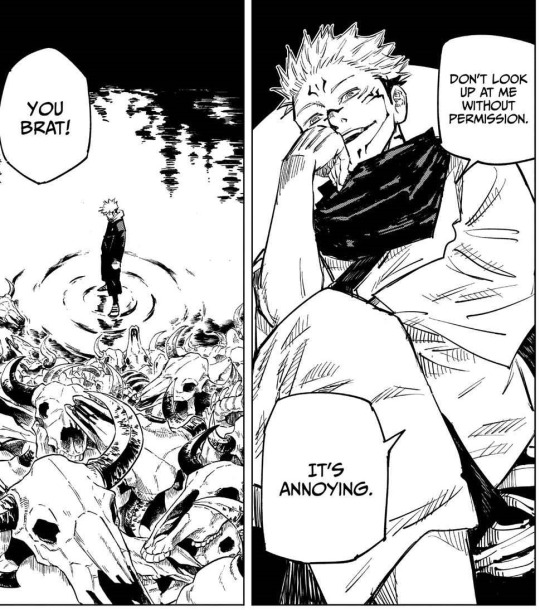
I don't really know where else to put this. Sukuna on his throne of ox skulls, a representation of the witching hour where reality falls apart and spirits come out to play.
How all this might look in action. (Defending my questionable writing choices.)
Though everything I've given is plenty enough for people to run wild with in fanworks, I would like to give examples of it in my own. My type of autism is one where it's easier for me have something to use as a direct reference. (Clear and concise instructions please.) So I want to provide that for anyone else wired similarly.
Context: The fic I'm writing is from Sukuna's POV so I've taken great care to avoid him using modern timekeeping terms. I have a timeline for everything outlined, but I refuse to make that clear to the reader so they can get the Sukuna Experience™.
Other characters will reference the time and give the reader little windows into what date it possibly is, but otherwise they have to infer it themselves.
But because I myself use modern time, I caught mistakes I made in an early chapter... (Aka before I realized Heian Timekeeping is Extremely Different.)
Old Sentence: The year is 2019.
Revised Sentence: The year is 2019 for the Common Era.
(Heian Japan was mimicking China so I'm assuming that the numbered years restarted with each era since I couldn't find how years were kept.)
Old Sentence: It’s reminding him he has not eaten for the past 5 hours and 38 minutes.
Revised Sentence: It’s reminding him he has not eaten since the hour of the dragon—338 minutes and counting.
(This one is self evident I think.)
But even within this chapter, I obscured the date by having Sukuna observe his surroundings. I don't think it's a good example so I'll use a different one.
...it occurs under the same wisteria and same midday sun. The branches and buds have begun to green and sag before the Flowering Moon has reached its full, an indication that the bloom will come early.
Wisterias bloom in late April around the time of full moon. April aligns with Yayoi or the Month of Plant Growth/New Life. I worked under the assumption that the moons can be called by their month names kind of like Native American moon names. But Plant Growth/New Life Moon didn't sound good to me so I changed it to Flowering.
So I do have a very specific date for when this scene occurs, but Sukuna doesn't know so the reader doesn't know. The best you can guess is sometime in April but you have to know when Wisterias typically bloom and what a Flowering Moon might be. (I'm hoping this kind of vague timekeeping disorients the reader and causes frustration. I used sun, moon, and star positioning charts for this got dang it.)
Tools to Use for Weird Timekeeping
Chinese Calendar Conversions
Solar Stem Converter
(This one is annoying to use because they don't use the translated names but there is a definitions table.)
Lunar Calendar Converter
(Unfortunately it only allows for 1901-2100. You can probably infer the lunar month via the Solar Stem Converter for older dates.)
Celestial Bodies
For star/constellation positions in the night sky use this:
Sky & Telescope Interactive Sky Chart
(Yes you can even change the location and time to get the exact night sky the characters might be looking at.)
For sun positions and sunrise/sunset times use this:
SunCalc
For moon positions and moonrise/moonset times use this:
MoonCalc
(If you want to see a summary of moon phases by month this tool is helpful.)
This tool gives celestial body-specific rise and set times along with positions:
In-The-Sky
(The site is a bit unintuitive so here is an example of it being used for a star cluster at a specific location and toggleable date.)
Extra Info
Here’s a document on how the Subaru/Pleiades star cluster was used for timekeeping in historical Japan: The Inspiration of Subaru as a Symbol of Cultural Values and Traditions in Japan
There’s also this website that briefly goes over historical Japanese astrology with a focus on the Orion’s Belt constellation: Astronomy and Mythology in Ancient Japan
Wiki links for celestial body festivals that have been around since the Heian:
Star Festival (Tanabata)
Moon Festival (Tsumiki)
Why have you done this?
I don't know. Please enjoy my perverse obsession with the little details.
#cactus yaps#Erikaposting with this one. Need to get my brain examined.#I almost included a rant about changing floral language confusing Sukuna even more but I stopped myself.#This is Sukugo in the vaguest way possible so I won't tag it I think.#The things I do for this fic... This is much worse than my Ace Combat one.#ryomen sukuna#jujutsu kaisen#jjk spoilers#jjk meta#writing ref
91 notes
·
View notes
Text
Writing Notes: Seasons
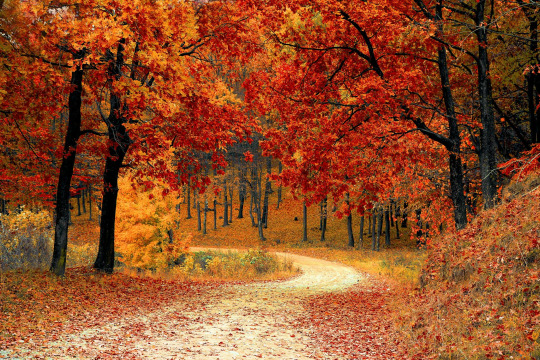
I noticed a few leaves falling from my tree, which means only one thing: it's time.
Time for fall. My favorite, blessed, most beloved season. Pumpkin spice lattes! Candy apples! Cherry pie! Haunted houses! Chilly weather that makes me snuggle up into my hoodie! Candy!
And, of course, it means that I have to share some writing notes with you about seasons.
So today, we're going to share a few different perspectives on seasons. We'll talk about the "traditionally accepted" associations for seasons, but also share other options and how you can infuse them into your work.
Why Use Seasons at All?
You don't have to if you don't want to. Maybe you want to focus entirely on the plot. But, you might add some hints of it for these reasons.
Gives a sense of place. This allows you to show how this place is impacted by particular seasons. Winter in Kampala, Uganda, is going to be wildly different than in Cedar Rapids, Iowa. Offers worldbuilding options. In a fantasy setting, seasons are an element of worldbuilding. (Just look at Game of Thrones.) There may be different dangers according to seasons, or unique holidays that can allow you to demonstrate how people interact with this world. Provides templates for description. You can get a lot of mileage out of showing a nice grassy field in spring or the leaves fluttering down during autumn. Don't go on for ages, but you can certainly add a few little flickers here and there. (just remember to put them in the right places for maximum momentum.) Deepens characterization. How characters feel about and interact with the seasons can tell us a lot about who they are. Someone who loves winter could love it because then they can ski, or because they want to cuddle up and be left alone. Someone who loves summer might like lounging around on the porch eating ice cream, or they might like it because it's time to go surfing! Suggests new challenges. If your character lives in Montana, winter is going to be horribly cruel. "The Hunter's Wife" by Anthony Doerr is all about how the seasons challenge the characters and help them grow. But in your story, it might be summer that's the worst. Or fall, or spring, or all of them but in different ways. Creates subtle symbolism. The season of your story can use certain symbolism depending on what kind of plot you have and what your overall theme is, as we'll discuss now.
So, now that we understand why seasons are important, let's look at each one and consider why it might be the best time for your story.
I will note that I am coming from the perspective as a person in the Midwestern United States. What I associate with the seasons, particularly the descriptions, may be utterly irrelevant to you depending on where you are from. If I made a wholly comprehensive list considering the entire world, we'd be here all day.
Keep that in mind and workshop some options for your setting and personal associations.
I'm not omniscient, so take what seems useful to you and leave the rest.
Spring
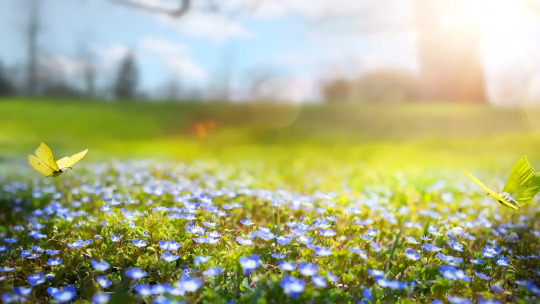
Ah, the flowers are blooming, the world is warming up, and we're finally crawling out of doors now that we're not buried in slush. Spring is generally associated with positive emotions, but there could be some dangers here, too.
To get some good symbolism, focus on spring's unique place between two fixed, more stable seasons, where we know what to expect: winter and summer.
There is a fragility and shifting balance in spring that can veer good or bad depending on what you're trying to show. Spring also has a sense of expectation, which can pay off (good summer) or fail (icky bad summer).
Associations
Positive
Warmth
Renewal
Hope
Rebirth
Childhood
Innocence
Potential
Change
New beginnings
Reunions
Optimism
Negative
Fluctuating emotions (spring can be quite unpredictable!)
New challenges on the horizon
Feeling exposed
"Nakedness"
Vulnerability
Growing pains
Feeling underappreciated, like a stepping stone to summer
Ferocity (like intense spring storms)
The fragility of life (not every baby animal will survive)
Descriptions
Positive
Wildflowers pushing through the soil
Baby animals
Trees blooming
New blades of grass
Budding leaves
Sunny skies
Life-affirming rain
Warming breezes
Slightly chilly nights
Weak sunrises
Days growing longer
Richly scented flowers
Negative
Sudden cold snaps
Dreary weather
Grey skies
Hard rain that traps one inside
Snow (a reminder of the past)
Flooding
Melting snow revealing last year's trash
Cold mornings
Shivering
Being too hot or too cold
Hard ground
Mud
Summer

Summer fun! Those lucky enough to live by a beach want to splash in the water or go kayaking above the cool waves. We can drink an ice cold soda as we head to outdoor festivals. Kissing as the summer frogs sing a chorus, or partying late into the night: how beautiful!
But summer can be awful, too. Too much beer at a festival and you throw up everywhere, or too much humidity and you die of heatstroke. There's a reason that gun violence goes up when it's hotter: people are pissy and itching for a fight.
There can be a great push-pull here as characters attempt to moderate themselves while also indulging their sense of adventure.
Associations
Positive
Adventure
Childhood
Freedom
Exploration
Warmth
Togetherness
Community spirit
Serendipitous meetings
Happiness
A sense of endlessness (longer daylight hours)
Puppy love
Negative
Long agonizing waits (again, longer daylight hours)
Exhaustion
Overwhelm
Oppression (sociological or environmental)
Excess
Sloth (if characters like to lounge)
Lack of control
Rage
Frustration
Disappointment
Descriptions
Positive
Droning insects
Fireflies (depending on area)
Warmth
Blue skies
Bright green leaves
Active wildlife
Butterflies
Cool drinks
Unexpected cool breezes
Fresh fruit
Whirring fan
Outdoor music
Sunshine
Beautiful sunsets
Negative
Loud, cramped festivals
High humidity
Extreme heat
Dehydration
Glaring sunlight with no shelter
Tornadoes/summer storms
Mosquitos
Broken fan
Sweating
Baking trash (ugh sorry)
Sore joints from the humidity
Spoiled/soggy food
Flat fizzy drinks
Autumn
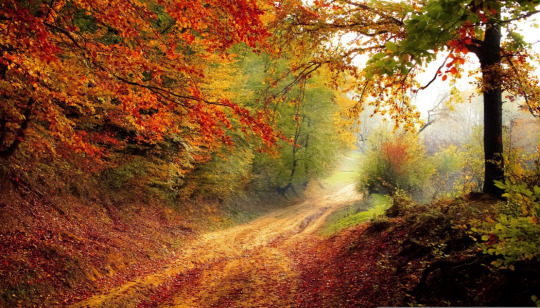
Okay, I'll try not to be too biased here, so I'll point out that autumn can be both beautiful and terrible. On one hand, we've got the cooler weather, the gorgeous foliage, and the contentment of harvest time: a job well done, and a time to rest.
Many people feel like this is when they are closest to their past loved ones and can commune with those long gone, which can be a good thing or a bad thing. It's a good time for when someone is putting their demons to rest and moving on.
We can also feel cold, dread, and fear during autumn. The nights are getting longer, and there could be all sorts of scary things in the shadows. They, too, are gearing up for the freezing winter months - and they're hungry.
Associations
Positive
Maturity
Adulthood
Rest
Slowing down
Introspection
Thinning of the veil (Halloween)
Spirituality
Retrospection
Harvest and bounty
Change
Reflection
Negative
Fear
Dread
Decay
Lost opportunities
Dwindling time
Anxiety
Limitations
Closer to the end
Feeling one's age
The unknown
Breaking down
Past coming back to haunt one
Descriptions
Positive
Falling leaves
Brisk wind
Crackling campfires
Warm drinks
Busy animals
Frost sparkling on grass
Seeing your breath in the air
Freshly baked pie
Crisp apples
Decorative pumpkins
Cozy hoodies/cloaks
Mulled wine and spices
Harvested grain
Baked bread
Sudden warm days
Negative
Fog shrouded, isolated roads
Creeping cold
Howling animals
Dark nights
Rotting fruit
Bitter wind through cracks in the house
Cold rain
Spoiled grain
Meager harvest
Insufficient clothing
Dead creatures
Skeletons
Icy mist
Barren trees
Creaking houses
Winter

Winter gets the short end of the stick when it comes to symbolism. People focus on the horrible things (cold, loss, sadness) without considering the positives: family, togetherness, comfy mittens, warm hot chocolate and presents.
After all, humans have developed our very own symbolism just to cheer the time up; winter celebrations happen all around the world. You've got so many options here, both in terms of themes, activities, and descriptions. What you focus on will determine how your story feels.
Associations
Positive
Togetherness
Community
Family
Resilience
Perserverence
Joy and whimsy
Caring for others
Possibilities
Planning
Companionship (or solitude)
Optimism
Pushing one's limits
Quietude
Introspection
Better days ahead
Negative
Cold
Nature's fury
Helplessness
Poverty (in any form)
Feeling trapped
Unpleasant relatives
Death
Old age
Broken relationships
Barrenness
Struggle
Endings
Sorrow
Lack of empathy
Hatred
Descriptions
Positive
Roaring fires
Soft heavy blankets
Thick socks
Cozy mittens
Jams and jellies
Hot drinks
Presents
Winter decorations
Christmas cookies
Candles
Softly drifting snow
Clear night skies
Conversations in another room
Clinking glasses
Mulled cider
The contrast between chilly room and warm blanket
Dead quiet nights
Negative
Freezing cold
Driving snow
Stuck in big snow drifts
Tense muscles
Dry skin
Running nose
Barren cupboards
Tense conversations with distant relatives
Frozen hands
Harsh wind
Stuffy rooms
Cold floors
Animals scratching at the door
Lack of ventilation
Can't get warm
Shivering
So there are my thoughts on the seasons! Hopefully this sparked something for you.
Now, perhaps, you will consider reading my book (now cheaper than ever!)
9 Years Yearning is a whirlwind look at two men growing up and finding themselves - and each other, wink wink. It features Uileac, an orphan determined to protect his little sister and become the best soldier he can be. However, this is complicated by Orrinir, a blustery young man whose bravado hides a surprisingly sensitive heart. In just under 34k words, they experience the whole range of human emotions - and beat a few people up. Ooh la la.

If you do decide to read 9 Years Yearning, don't forget to leave a review!
It can even be a bad review if you want. Amazon uses ratings of all shapes and sizes to determine whether a book is worth getting shown to other potential readers.
Lack of reviews = Jeff Bezos breaks my door down with a baseball bat and drags me to the Hell Sphere.
So please, I have dogs that want their snackies. For $2 and a few nice words, YOU can help buy this small child her favorite treat (bully sticks).

#writing#writing resources#writing advice#writing tips#writing reference#on writing#writing resource#for writing#writing inspo#writing ref#symbolism#creative writing#writerscommunity#writeblr#writeblr community#writing community#am writing#book writing#writing a book#writer stuff#writer community#writers of tumblr#writerblr
54 notes
·
View notes
Text
Some Sickness Writing Refs
Coughing
Hacking Cough
Wheezing
Shuddering
Dry/Wet Cough
Spittle
Phlegm
Mucus
Whistling Cough
Whooping Cough
Rasping
Gasping
Chesty Cough
Throaty
Croup
Chills
Shivering
Feverish
Shakiness
Trembling
Teeth Chattering
Tremors
Goosebumps
Sweaty
Drenched
Cool Skin
Watery Eyes
Bedridden
Stiff
Sore
Housebound
sick-abed
Bedsores
Suffering
Paralyzed
Debilitated
bedrid
Unconscious
Snooze
Groggy
bedfast
Dehydrated
Pale
Immobilized
Red-faced
Feeble
Incapacitated
Hospitalized
Feverish
Sweaty
Sweltering
Red-Faced
Drenched
Soaking
Teetering
Hot to touch
Beads of Sweat
Heat exhaustion
Damp Clothing
Delirious
Febrile
Clammy
Lightheaded
110 notes
·
View notes
Text
LOOK AT THE COMMISSION THAT @galactickit GAVE ME I!!!! EVERY TIME I LOOK AT IT I GET A NEW RUSH OF A BRAND NEW EMOTION!!!! IT'S THEM!!!! REVERSE ORDER RAPHAEL AND DONATELLO!!!!! PLEASE GO COMMISSION HER IT WAS AMAZING THIS IS AMAZING I AM BEYOND INSPIRED I'M SO HAPPY OMG!!!!!!!!!!!!
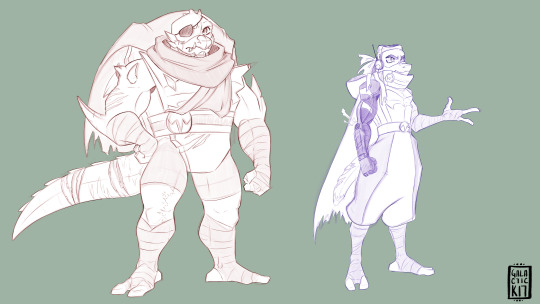
#rottmnt#inspo#reverse order#sparks joy#writing ref#rottmnt fic#important#i'm dying and being revived in an endless and instant loop thank you so much#reverse order raphael#reverse order donatello#reverse order inspo
59 notes
·
View notes
Text
my main criticism of most tlt band aus ive seen is that gideon is the frontwoman. Absolutely NOT. Gideon has the biggest fucking drummer energy ive ever seen
88 notes
·
View notes
Text
How to Get Inspired to Write and Regain Creativity
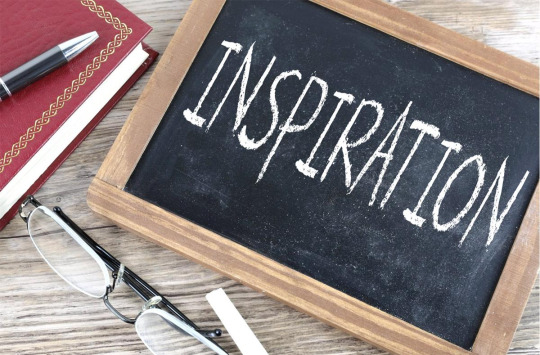
The muses are fickle, especially when it comes to writers. Sometimes inspiration strikes at the worst of times—while working, in the middle of the night, etc.—and other times it refuses to strike at all. How do you get inspired to start a project, especially when you haven’t written in a very long time?
Here are some tips and tricks that may help you get back into the writing groove.
1. Is It Writer’s Block You’re Worried About?
This post is meant to be a resource for people who don’t have any current projects or haven’t written/worked on their current projects in a very long time due to lack of inspiration and motivation.
In contrast, “writer’s block” is usually used in reference to having a load of inspiration and motivation to write but struggling with a mental “block” that prevents you from doing so.
These two overlap a lot, though, so if nothing on this post is working, you can find my post on combatting writer's block here!
For some extra help to get the ball rolling once you've regained inspiration, also check out the "Getting Started" section of my FAQ!
2. Set Aside Time to Be Creative
Oftentimes, creativity and inspiration can be lost due to a busy schedule. Life happens! Work, school, and a variety of other things could be restricting your ability to write or do creative things consistently. All it takes is one busy week, or month, or year, and now you feel like you’ve been thrown off of the carousel of creativity and can’t find your way back on again!
The key to combatting this is blocking out an hour or two (every day or every week) that you can use to spend time writing. Set a timer or alarm and put your phone aside (it is your enemy! It can and WILL distract you!) and sit down with the intent to write. Even if you get nothing done, getting in a creative headspace is still incredibly helpful! Baby steps!!!
By blocking out a specific length of time and putting it in your calendar, you can mentally prep to be creative and also can assure that you have ample time to get the juices flowing without worrying about being interrupted.
3. Check Out Some Writing Prompts
Sometimes, it can be easier to start writing if you’re told what to write. A lot of writers find prompts helpful as warm-up exercises, and use them for projects on the side when they’re taking a rest from their current WIP.
It could be helpful to find a couple of prompts and see what cool things you can come up with! Even if they don’t seem like something you’d want to work on long-term, the very act of writing in and of itself will wake your “writing muscles” back up and get them in the groove of being creative again.
You can check out #writing prompts on my blog, or check out these amazing prompt blogs:
@writing-prompt-s
@creativepromptsforwriting
@promptsforthestrugglingauthor
@daily-prompts
@promptsonpaper
4. Write Fanfiction (If you’re just struggling with original works)
Fanfiction is a great way to get back into being creative because all of the hardest parts about getting started (character creation, setting, lore, etc.) have already been done for you. You don’t have to post your fanfiction or even complete your fic, just write a short scene or story about two characters with pre-established backstories, personalities, and dynamics. It’ll get you back into the basics of describing setting and writing dialogue.
5. Make a Fun Playlist or Pinterest Board
Making fun playlists or Pinterest boards based on a certain genre, character, or piece of media you like can really get the creative juices flowing! After all, having a playlist to listen to that perfectly encapsulates the mood, tone, and pacing of your scene or story can really get you inspired! And with a Pinterest board for visual references to back you up, descriptions can come a whole lot easier!
I don't really use Pinterest except for art references, but if you don’t want to make your own writing playlist, feel free to borrow some of mine! Just a note: I find words in music very distracting when I write, so all of these are instrumental. Sorry if it’s not your cup of tea!
Here’s a link to my master list of instrumental playlists.
6. Read!
I know. It’s hard. And I can’t even talk; I haven’t read a proper book in a year, probably. For me, the hardest part is starting; I drag my feet for months before finally picking up a book, whip through a good chunk of it in one or two sittings, but once I put it down, I never return to it. But reading is an excellent way to get inspired as a writer, and to improve your way of writing!
By learning and getting inspiration from fellow writers, you not only get an idea of the creative possibilities, but also learn how different writers work their process. Fanfiction counts, too!
7. Get a Writing Buddy!
Sometimes, creative things such as writing can be hard because they’re traditionally a “solo sport” so to speak.
But having a writing buddy, someone to just be in the room or on call with you while you both be creative together, can do loads for your inspiration. Sure, there’s a chance that you’ll just distract each other and fool around, but if you really work to hold each other accountable, even getting into the creative headspace is a great way to start.
Also, you have a partner to bounce ideas off of!
Hope this helped, and happy writing!
#long post#writing#writing tips#writing advice#writing help#inspo#writing inspo#writing ref#writing reference#writing inspiration#inspiration#writeblr#booklr
330 notes
·
View notes
Text
el paso, between the crickets and the moon | 5k | gen | post s7, getting together, angst about eddie's childhood because he's staying over in his childhood home
a/n: written as part of the @911fanworksfestival for @p-trichor . I hope you enjoy!
Eddie's not sure if Chris is actually ready to come home, or if the prospect of staying longer and starting Catholic school in El Paso was the thing that got him to call his dad. But frankly, Eddie doesn't really care, doesn’t try to question it too much, because it means Chris is talking to him and is going to be home again. And that means that Eddie can make it up to him, explain some things, and show him how sorry he is. Show him that he's still a good dad. Or at least that he’s always trying to be a good dad, a better dad. And the thought of Chris putting on the same uniform Eddie had years before, with the little blue and white shield embroidered stiffly on the chest, forced to attend Wednesday Mass, taught abstinence only — which is a whole other thing to be anxious about but, regardless, Eddie isn’t going to let his kid get taught sex ed like that — is enough to make Eddie want to rescue Christipher even if it's against his son’s will. But being in El Paso is weird. Eddie hasn't been back since his dad's retirement party, and it's just weird. It's weird because he's apparently expected to stay the weekend while Chris finishes packing — except all he brought with him had been a backpack and everything that Eddie’s parents had bought him was basically just a double of something in L.A., so Eddie isn't really sure what he’s going to pack — and it's weird because he can feel his mom's gaze fixed on his back every second of the trip since the moment he and Buck touched down in the airport. It’s like she’s constantly on the lookout for some reason to keep Chris there, like she’s expecting Eddie to snap and pull out a Shannon wig of his own. Like he’s going to pull out a Shannon wig and plop it onto Buck. Which is a whole other thing, Buck being here. Because Buck is always here and he didn't even hesitate when Eddie said “I bought two tickets”. Because they’re always together and because Eddie knew he would need the moral support while dealing with his parents. That's why he brought Buck. Buck always has his back.
read on ao3
#my fics#fic#fanfiction#writing ref#9 1 1#eddie diaz#evan buck buckely#buddie#eddie diaz x evan buckley#911 abc#911 fan works festival
50 notes
·
View notes
Text
a guide to writing lower class (american) living/habits
-saving things. some people save containers (sour cream, jars, juice bottles, etc), some people save twist ties, but things that should be disposable aren't usually disposed of. more examples would be: reusing ziplock bags, disposable coffee cups, scrap paper, cardboard shipping boxes, etc.
-giving away items you could throw away. shampoo doesn't work well on your hair? you ask your sister if she wants to try it, even though you've used a third of it. you already spent the money, so you aren't going to waste it. gifted food at a housewarming you won't eat/allergic to? give it away, even if it's only a serving or two.
-furniture doesn't usually match. sure, over the span of a couple years living in the same place, you might replace a chair with something that matches what you already have, but necessity trumps aesthetic. if you find a nice arm chair at a thrift store for twenty bucks, and you're having family over in a week, a mismatched chair is better than no chair.
-large freezers. a lot of lower class families will have giant chest freezers, because they won't waste food, and if the thanksgiving turkies are 75% off in december, they're going to buy six of them. investing in a chest freezer is usually better than not.
-kids share rooms, even if they're opposite gender. i've known a lot of large families who had six kids and three bedrooms. parents took one, the youngest three in one, the older three in the other, regardless of gender. sometimes there isn't enough space to split them up, and in conservative places this can be seen as taboo, but it's necessity so it's overlooked.
-an eight person family might have one car, and it's probably a mini van. if only one parent works, they might commute with public transport, or work walking distance/carpool. if it's a smaller family with one car, the working parent (if there's only one) might take the car, and the stay at home parent and kid(s) will commute via public transport.
-a lot of families have two working parents, and the kids will often stay home alone at a younger age than is expected. sometimes this is for an hour or two after school, sometimes it's a working day at a time. if they're younger, families will often come together to have "playdates" with other kids while the parents work, and sometimes schedule around each working parents' schedule to trade off where they can.
-a lot of young families will live with their parents/siblings/family if they have the space, while the kids are young. this allows the parents to work, while grandparents/other family can watch the child(ren) often for free. sometimes this goes on longer, but i've known a lot of families who raised their kids for the first 1-5 years in their parents' basements.
-a lot of private schools have family plans, meaning the more kids from the same family you send there, the lower the cost. this means some very poor/low class families can send four kids to private school. a lot of their classmates come from middle/upper class families, though, and there is an obvious disconnect between them.
-this is more well known, but hand-me-downs and thrifts. younger siblings will have gotten their older siblings' clothes their entire life. a new piece of dress clothing once in a while, maybe, but almost exclusively hand-me-downs. older siblings will get a lot of thrifted clothing, some new clothing, and as a teen will probably get clothes passed down from a parent if they're similarly sized.
-church/school/community events give out free food. your family will be going, because it's one less meal to pay for.
-a teen's first car will almost guaranteed be an old family car, like a mini van or your dad's work truck. this won't necessarily be when you get your license, but well after. you'll be coordinating with your parents for when you can take their car for a couple months/years first. if you get a car of your own, it will probably be 3k$ and have a permenantly on check engine or tire light, and you'll probably pay for it yourself, with some help from your parents.
-events like prom or homecoming for a teen will often be dependent on if they can pay for it themselves. $50 is a lot for a ticket to prom, and parents can't afford to pay for that, the dress/suit, etc. your attire will probably be used, thrifted, or hand-me-down. still, parents will often try to help and get you to those events, even if it's hard.
-in some situations, a teen may help pay for the cost of living for the family. it's not super common, but it definitely happens, especially in close-knit families.
-you might expect a lower class family to have a small, empty house, as they can't afford to pay for extras, but a lot of these houses will be crowded. if an item is free or cheap, it's taken. things are saved.
-parents may or may not help pay for a child's college. it's very case-to-case basis. sometimes they'll have a college fund started from a young age, sometimes not, sometimes they did and had to dip into it throughout the years. more than likely, especially if there's more than one child in the family, they will not pay for the entirety of their child's college, and the child will have to go through FAFSA, scholarships, etc.
im sure there will be more eventually, but for now, this is all i've got. thanks, and happy writing! <3
14 notes
·
View notes
Text

Beyond Warped: A Beyondmane Band Au
https://archiveofourown.org/works/63341395/chapters/162272785
He keeps that memento of her, much like he does with Lawly's: that hidden strip of blond at the base of his neck, a piece of her with him always. He likes that they match; that they're not a matching pair, but a pair nonetheless.
Beyond Birthday is the lead singer of Blue Light, a prominent name in Japan's burgeoning alt-rock scene. It's on their first tour to America, before and after cameras roll and in the height of the worst summer of his life that he meets Misa-Misa, a fellow singer on the scene in an achingly similar situation. They look for relief from unrequited love in each other, and find something special between the sweat and heat and hurt of a long, bittersweet summer.
first chapter of my Beyond Warped Tour Au is up!! I've had this au spinning around in my brain for months now, and finally bit the bullet and posted the intro! updates will Not be scheduled or timely lmao I have a Lot of wips and ideas I'm working on but if you like 00's emo/alt music and beyondmane and some unrequited sidepairings, be sure to check this out as updates slowly begin coming out!
11 notes
·
View notes
Text
two people in their own separate time loops trying to save the other. everything they learn about each other is real - they're really interacting with the other person - it's just that the other person is simultaneously in a time loop of their own. i assume both time loops break when they both finally line up on one specific loop, every action taken the same in both until they slowly combine together, until they're looking into each other's faces and realize they both know, allowing the two of them to finally, finally work together. i also assume after breaking free they end up with all of their memories of both time loops, which is a really mindfuck.
this could be about any two people (or three or more!) but also it's specifically about grace and daniel le domas from ready or not (2019) lmaoo
#ready or not#movies#time loops#writing ref#part of me is always thinking about grace and daniel from ready or not tbh
14 notes
·
View notes
Text
My collection of dishonored pinterest boards. I use them for writing inspo!
Places:
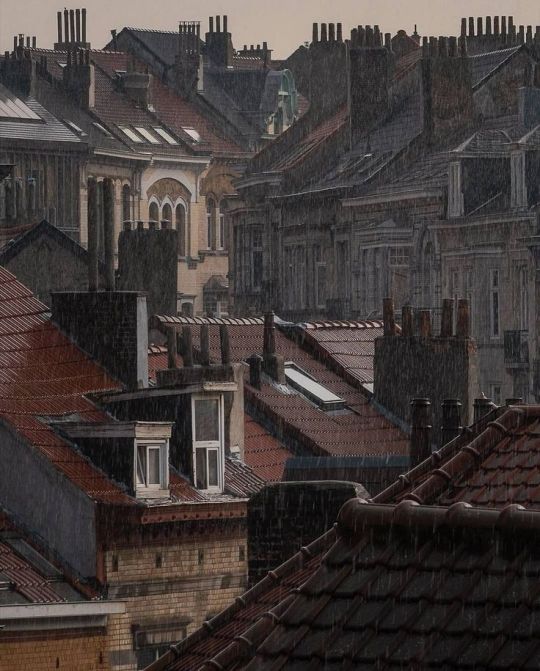
Dunwall Estate District (aristocracy) Tyvia Pendleton Manor
People:
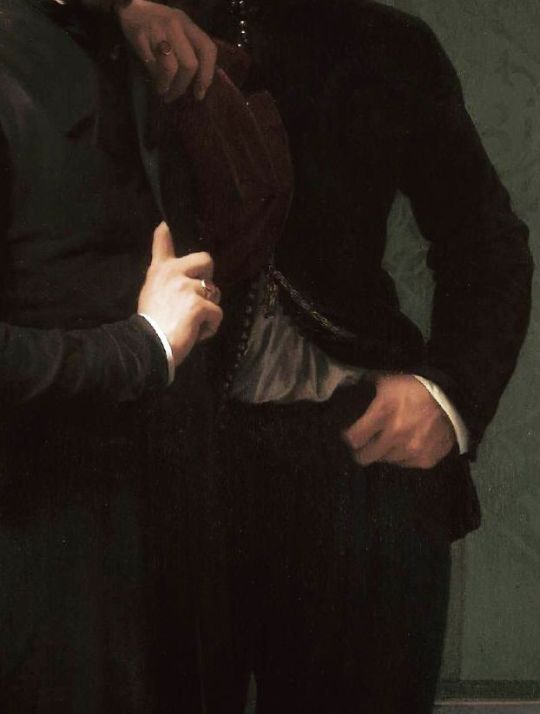
Kirin Jindosh Treavor Pendleton Custis Pendleton Morgan Pendleton
Hopefully I'll make more down the road but, for now, this is what I have :D
16 notes
·
View notes